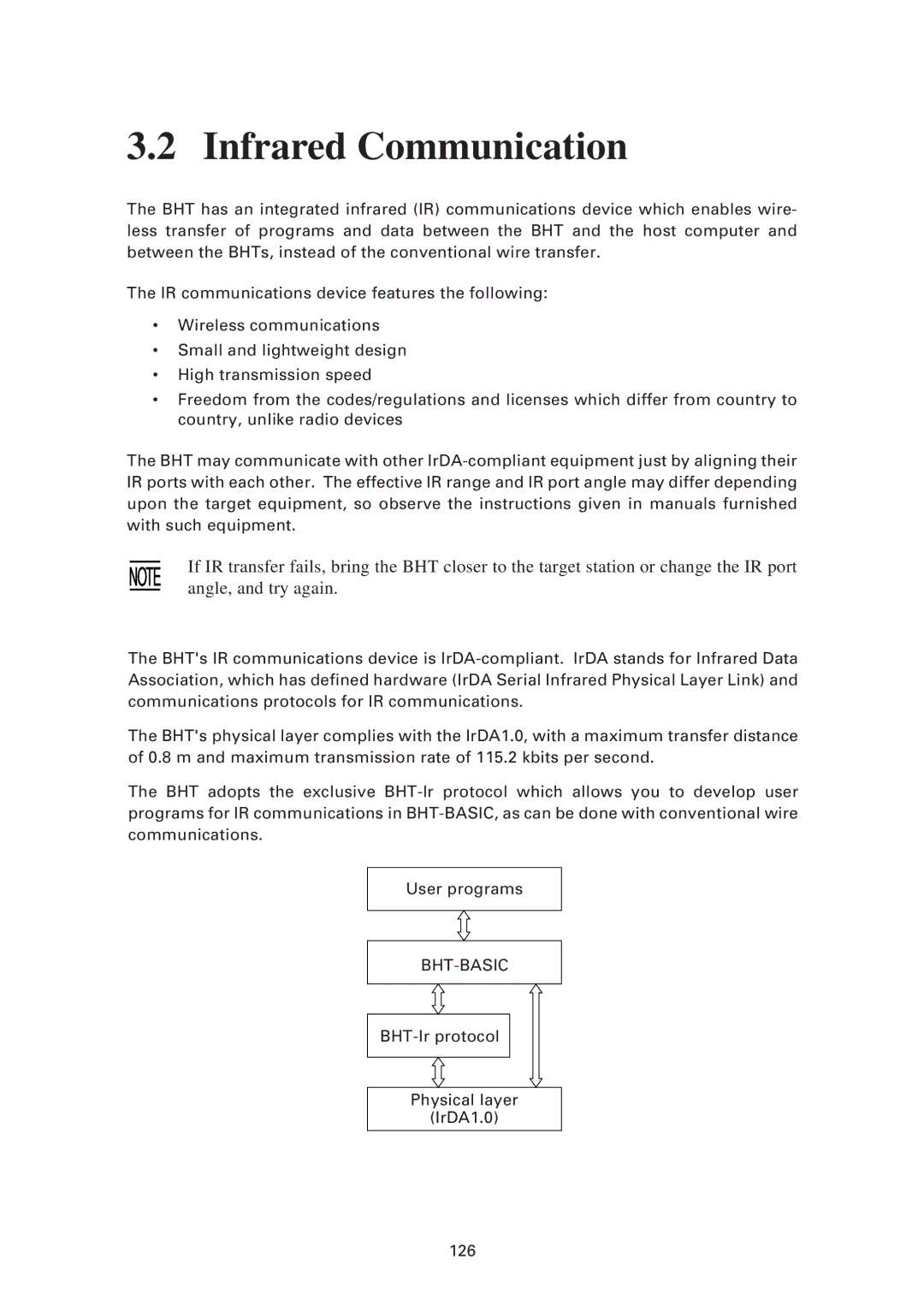
3.2 Infrared Communication
The BHT has an integrated infrared (IR) communications device which enables wire- less transfer of programs and data between the BHT and the host computer and between the BHTs, instead of the conventional wire transfer.
The IR communications device features the following:
¥Wireless communications
¥Small and lightweight design
¥High transmission speed
¥Freedom from the codes/regulations and licenses which differ from country to country, unlike radio devices
The BHT may communicate with other
If IR transfer fails, bring the BHT closer to the target station or change the IR port angle, and try again.
The BHT's IR communications device is
The BHT's physical layer complies with the IrDA1.0, with a maximum transfer distance of 0.8 m and maximum transmission rate of 115.2 kbits per second.
The BHT adopts the exclusive
User programs
BHT-BASIC
Physical layer
(IrDA1.0)
126
